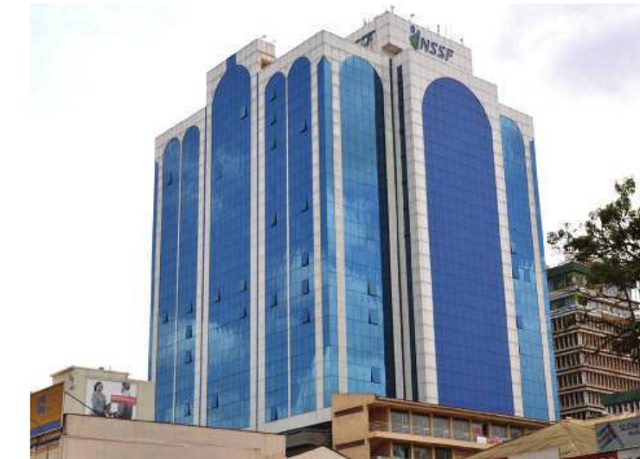
The reforms the NSSF Act and Social Pension Schemes need for alignment with comprehensive social protection systems
COMMENT | PATRICK AJUNA | The National Social Security Fund (NSSF) (Amendment Bill), 2019 presented in parliament recently has generated mixed reactions from the public on a number of issues of interest. This prompted the government through the Ministry of Gender, Labour and Social Development (MGLSD) to organise a Stakeholder Consultative Breakfast Meeting on August 30 at Imperial Royale Hotel. The aim was to harmonise positions on issues of concern.
The various groups that attended the meeting were the Social Partners – representatives of Employers through their Umbrella body – Federation of Uganda Employers (FUE), workers unions – NOTU (National Organisation of Trade Union) and COFTU (Central Organisation of Free Trade Union), government representatives from line ministries and departments, Civil Society Organisations (CSOs) and Development Partners, among others.
Generally, the National Social Security Fund (Amendment) Bill (2019) is a welcome development given that the current National Social Security Fund (NSSF) Act, Cap 222 has weaknesses in relation to the governance of the NSSF. The appointment of the Managing Director and Deputy Managing Director directly by the Minister without consulting the board, limited membership coverage, and limited number of benefits offered to members, need rethinking.
Many countries in Africa; like Zambia, Zimbabwe, Namibia, Liberia, Lesotho and Malawi, are currently preoccupied with the task of reforming their respective Social Protection Systems. The aim is to increase coverage in line with the 2030 Agenda for Sustainable Development whose targets have provided a renewed impetus for the development of comprehensive social protection systems. The targets recognise the contribution of social policies in addressing the structural drivers of risk and in building long-term resilience. There is also need to implement preventive strategies towards turning the mandatory savings into social security benefits with guaranteed and regular cash transfers for contributors who reach retirement age.
Therefore, the following general issues should be addressed in the (NSSF) (Amendment Bill) in addition to the specific issues which will be presented to the authorities as FUE Position Paper when the final consultation of our members on this Bill is finalised.
First, the appointment of the Managing Director and Deputy Managing Director of NSSF Board should be done in consultation with the employers and the workers through their representatives since they are the main stakeholders of the fund as contributors, taxpayers, and beneficiaries. Their involvement would create and maintain a sound system with efficiency and effective service delivery.
In line with the fore mentioned assertion, Social Dialogue Consultation (Industrial and National levels) Recommendation of 1960 (No. 113): Calls on member states to take “…measures appropriate to national conditions to promote effective consultation and co-operation at the industrial and national levels between public authorities and employers’ and workers’ organisations, as well as between these organisations…). And further states that “such consultation and co-operation should aim in particular at ensuring that competent public authorities seek the views, advice and assistance of employers’ and workers’ organisations in an appropriate manner, in respect of such matters as…the establishment and functioning of national bodies such as those responsible for social security and welfare.…”.
Similarly, the choice of the representatives of employers and workers to the NSSF Board should be solely the task of their respective constituents and not by the minister as the Bill suggests. This will enable them to execute their mandate in compliance with the ILO practice and standards to avoid political patronage.
Second, the Employers and Workers should have equal representation on the NSSF Board. While it is true that NSSF is workers’ money, the fact that employers contribute two-thirds of this NSSF implies that they have a big stake in the funds’ management, and therefore a justification for equal representation to ensure value for their (employers’) money.
Third, while NSSF was established majorly to provide income security during old age, serious injuries or death, majority of the people consider NSSF to be a source of investment funds for housing, business and other purposes. That is why some are agitating for midterm access to their mandatory savings.
Such a divergence in the objective of the NSSF needs to be addressed with clarity in the NSSF (Amendment) Act. Mass sensitization and educational programmes are needed for contributory social scheme(s) to provide increased levels of protection; including providing social insurance to the beneficiaries against the worst shocks during their times of incapacitation and vulnerability.
 The Independent Uganda: You get the Truth we Pay the Price
The Independent Uganda: You get the Truth we Pay the Price


